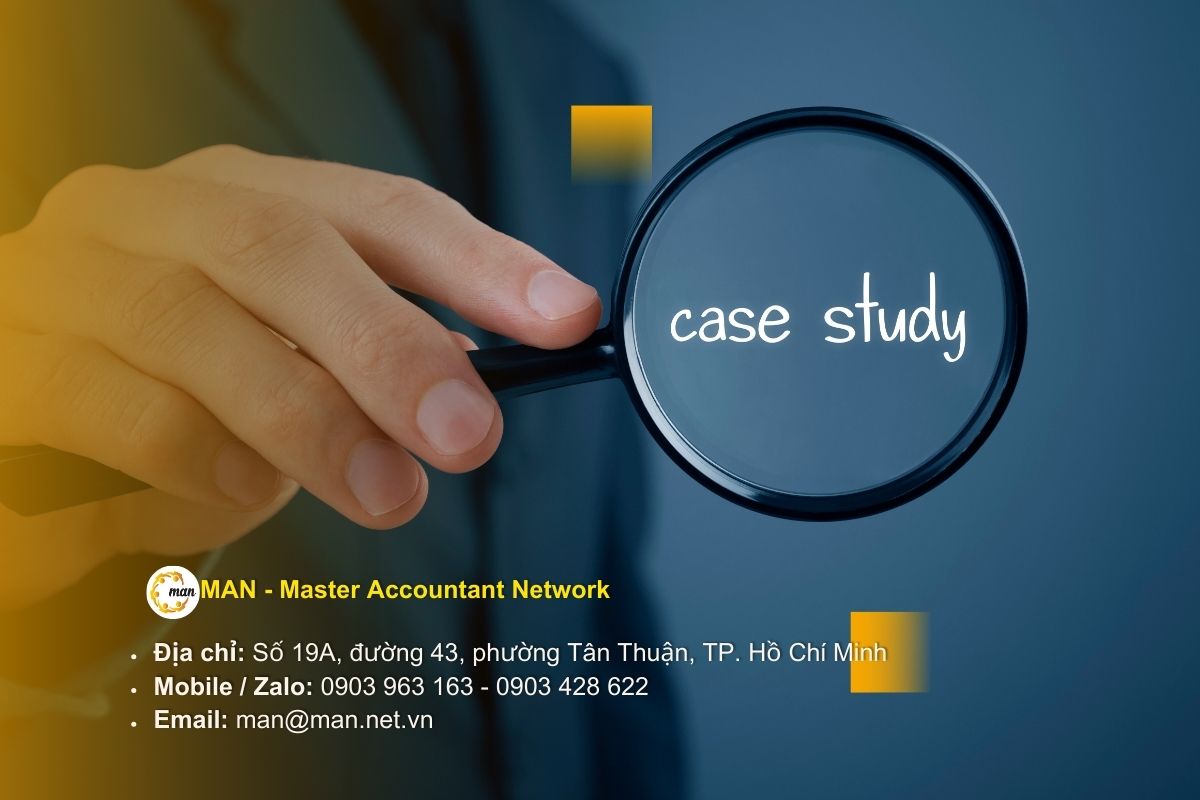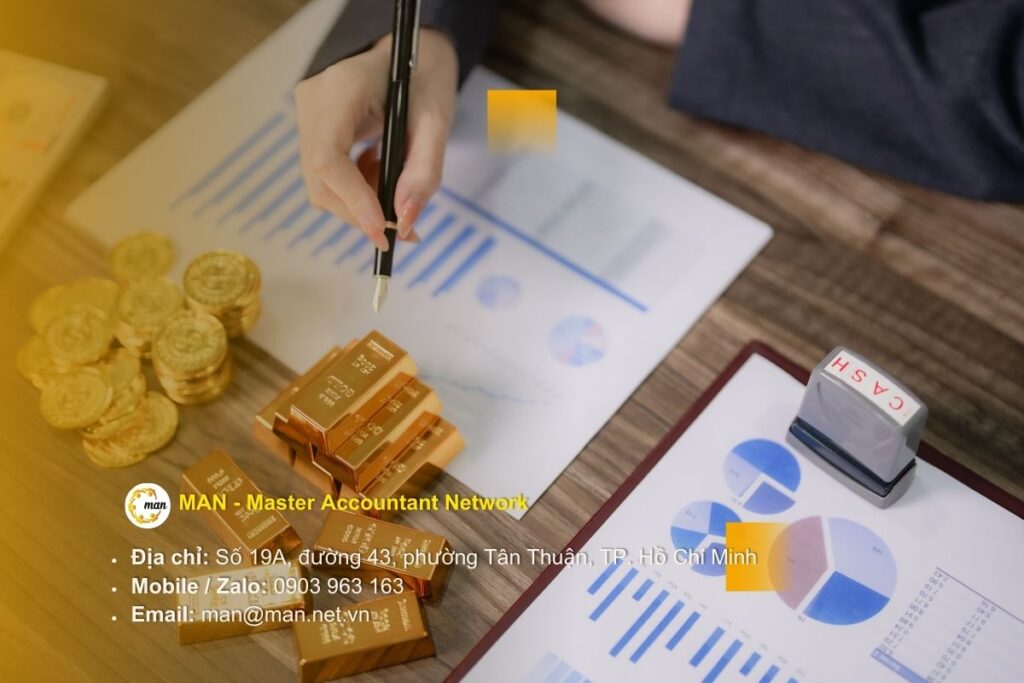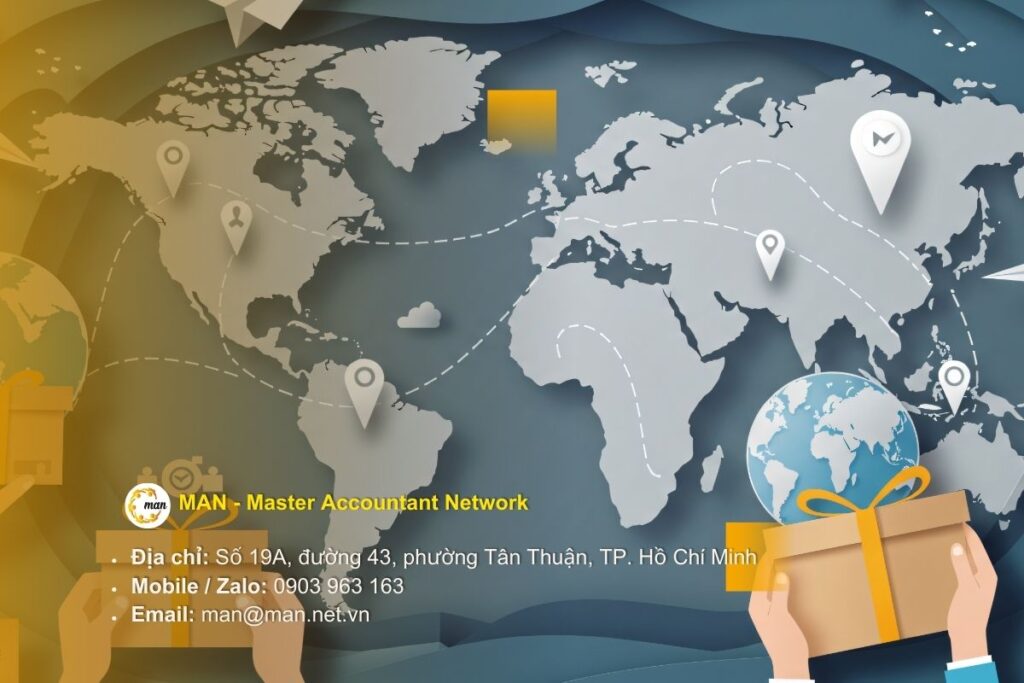Related party transactions are not only a legal procedure, but also an important mechanism to help businesses comply with regulations on declaration and price determination when arising relationships with related parties. In particular, businesses with parent companies, subsidiaries or units with ownership and control relationships with each other need to have a firm grasp of regulations on related party transactions to avoid legal risks and the risk of being subject to tax penalties.
If your business is having internal transactions but is not sure whether they are subject to declaration or not, then it is necessary to understand the concept, conditions for determining affiliated relationships and the obligation to declare according to the law. Decree 132/2020/ND-CP is something that cannot be ignored. At the same time, using the service of supporting the preparation of related party transaction records will help businesses ensure compliance with the law, save time and minimize risks.
In the context of integration and globalization, more and more Vietnamese enterprises are participating in multinational supply chains, leading to the need to allocate profits and costs among related parties. To effectively manage this activity, Vietnamese law has built a strict system of regulations that all enterprises must proactively comply with.
What is affiliate trading?

According to Decree 132/2020/ND-CP of the Government on tax administration, related party transactions are understood as transactions arising in the production and business process between related parties. Related party relationships here are relationships in which one party has the ability to dominate, control or significantly influence the conditions, policies or business results of the other party.
Related transactions may include the following types of transactions:
- Buying and selling goods, providing and using services.
- Borrowing, lending, financial guarantee activities.
- Purchase or transfer of fixed assets.
- Transfer of intellectual property and technology.
- Allocation of costs or profits among related parties.
Affiliated transactions typically have the following characteristics:
- Affiliated transactions are not regular transactions between parties that have no related relationship in the market;
- Related party transactions can affect the costs, revenues, profits and taxes of the parties involved;
- Related party transactions can be used to shift profits from one party to another to reduce taxes or optimize taxes.
Cases of related party transactions
Pursuant to Decree 132/2020.ND-CP, cases of related party transactions are:

- Transactions between enterprises and companies in the same system: Including parent companies, subsidiaries, affiliated companies or affiliated branches.
- Transactions with individuals/organizations that have control or dominance: That is, parties that have the ability to decide or directly influence the production and business activities of the enterprise.
- Transactions with individuals or organizations that have a family relationship with the controller: for example, spouse, parents, children or other relatives of the individual who holds control or decision-making power in the enterprise.
- Transactions with parties under the same control of an individual or organization: Where both businesses are decided, controlled or significantly influenced by the same person or organization.
- Transaction with a designated party: That is, an individual or organization authorized or designated by the person with control and decision-making power in the enterprise to conduct the transaction.
Correctly identifying cases of related party transactions is only the first step. Once the related party relationship has been identified, the enterprise is required to fulfill its declaration obligations in accordance with the law. This is an important requirement to ensure transparency in tax administration.
Determine independent prices for related party transactions
For related party transactions, enterprises are responsible for determining transaction prices according to the arm’s length principle. Simply put, this is the principle that ensures that prices in related party transactions are set at the same level as those agreed upon by independent parties (without any related party relationship) under similar transaction conditions. This principle helps eliminate “transfer pricing” and reflects the true economic nature of the transaction.
According to Decree 132/2020/ND-CP, below are the main methods for businesses to apply when determining market prices:
Comparable Uncontrolled Price (CUP) Method
- Take prices in independent transactions with similar conditions as the basis for comparison and determination of prices for related transactions.
- Often used for simple and popular buying and selling of goods and services on the market.
Resale Price Method (RPM)
- Start from the selling price of the goods/services to the independent party, then subtract a reasonable resale margin to determine the purchase price from the related party.
- Applicable in cases of distributing goods and services with low added value, not requiring many post-purchase activities.
Cost Plus Method (CPM)
- Based on the production/purchase cost, then add a reasonable profit margin to form the selling price for the affiliate.
- Suitable for production of high value-added goods and services, or when there are many business activities and processing before sale.
Profit Split Method (PSM)
- The total profit (or loss) from the related party transaction is divided among the parties according to their contribution ratio (assets, functions, risks).
- Applicable when transactions are closely linked and difficult to separate, or when there is a lack of comparable data in the market.
Residual Profit Split Method (RPSM)
- First, allocate a portion of the profit to the parties involved in the transaction but who do not play a significant role (according to the normal profit level).
- The remaining profits are divided among the parties that play a key role or own unique assets or technology.
- Appropriate when at least one party has unique functions, risks, assets and lacks comparable market data.
Transactional Net Margin Method (TNMM)
- Use the same independent transaction price that one of the related parties has made with a third party under similar conditions.
- Usually applies when internal data about independent transactions of the business is available.
Enterprises need to choose the most suitable method for each type of related party transaction, based on the following factors: comparability, feasibility, reasonableness and transparency. At the same time, enterprises must prepare documents, clearly explain the basis for selection, application method and reference data source, to ensure reliability when tax authorities inspect.
Conditions for determining related party transactions
According to current tax law, not all transactions between enterprises are considered related party transactions. Only when an enterprise and its partners have a related party relationship under one of the following conditions will the transaction be subject to declaration and management of related party transactions. Specifically:
Capital ownership relations
- An enterprise directly or indirectly holds 25% or more of the capital contribution of another enterprise.
- Or there is a third party jointly holding at least 25% of capital contributions in both enterprises.
For example: If Company A owns 30% of Company B's capital, all transactions between A and B are considered related transactions.
Management and operations relations
- An enterprise has the right to directly or indirectly decide to appoint more than 50% members of the Board of Directors, General Director, or Director of the other enterprise.
- Two businesses with the same 50% management or executive members appointed from the same party.
For example: If the parent company appoints the majority of the subsidiary's management, the transaction between the two parties is considered an associated transaction.
Relationships on borrowing, lending and financial guarantees
- An enterprise borrows capital or is guaranteed by an affiliated party with a value of over 25% of owner's equity and accounts for over 50% of total medium and long-term debt value.
- This situation often gives rise to financial dependence, so any associated transactions are identified as related party transactions.
Personal or family relationships
- Transactions between businesses and individuals who have control, or relatives (parents, spouses, children, siblings) of that individual.
- This is an indirect relationship through human and family factors, which has the ability to influence business operations.
Relationship through intermediary or appointment
- The business and the partner are both controlled or directed to do business by the same individual or organization.
- The enterprise conducts transactions with individuals or organizations designated by the controlling party.
For example: Corporation X appoints Company A in Vietnam to purchase raw materials from Company B (same corporation). This is an associated transaction.
Correctly identifying the conditions for determining related-party transactions helps businesses know which transactions are subject to specific tax management. However, the next important step is not only to determine the related-party relationship, but also to fully perform the obligation to declare related-party transactions according to Decree 132/2020/ND-CP. This is the basis for tax authorities to assess transparency, prevent transfer pricing risks and protect businesses from the risk of being taxed.
Obligation to declare related party transactions according to Decree 132/2020/ND-CP
According to current regulations, all enterprises that have related-party transactions are responsible for declaring information about related-party relationships and related-party transactions during the tax period. The declaration contents are shown in Appendix I, II, III issued with Decree 132/2020/ND-CP, specifically:
Declaration of information on related relationships (Appendix I)
- Identify related parties based on criteria of capital, management, operations, human relations, family relations, etc.
- Statistics of all transactions occurring during the period with related parties.
See details: Appendix I related party transactions
Transfer pricing determination dossier
- Local file: Detailed analysis of operations, functions, risks, financial information of enterprises and related parties in Vietnam.
- Master file: General information of the entire corporation, organizational structure, transfer pricing policy, profit allocation.
- Country-by-Country Reporting (CbCR): Applicable to multinational corporations with global consolidated revenue of VND 18,000 billion or more.
Deadline for declaration and submission of documents
- Enterprises must declare related party transactions at the same time as submitting annual corporate income tax (CIT) finalization declarations.
- Transfer pricing records must be prepared, kept and presented upon request by tax authorities, for a minimum period of 10 years.
Risks of non-compliance with related party transaction regulations
Administrative sanctions
When an enterprise has related party transactions but does not declare, prepare or present the Appendix and the dossier for determining the price of related party transactions according to Decree 132/2020, the tax authority has the right to impose administrative penalties on tax violations and determine the amount of tax payable (according to the Law on Tax Administration and guiding decrees).
Acts such as not submitting appendices when settling corporate income tax or not submitting tax declarations may be subject to fines, specifically as follows:
“A fine of VND 5,000,000 to VND 8,000,000 shall be imposed for submitting tax declarations 31 to 60 days after the prescribed deadline.
A fine of from VND 8,000,000 to VND 15,000,000 shall be imposed for one of the following acts:
- Submitting tax declaration documents 61 to 90 days past the prescribed deadline;
- Submitting tax declaration documents 91 days or more after the prescribed deadline but no tax payable arises;
- Not submitting tax return but no tax payable;
- Failure to submit appendices as prescribed in tax management regulations for enterprises with related transactions attached to corporate income tax settlement dossiers.
A fine of VND 15,000,000 to VND 25,000,000 shall be imposed for the act of submitting a tax declaration more than 90 days after the deadline for submitting a tax declaration, with tax payable arising and the taxpayer having paid the full amount of tax and late payment to the state budget before the tax authority announces the decision to conduct a tax audit or inspection or before the tax authority makes a record of the act of late submission of a tax declaration.”
Source: Law Library
Risk of tax arrears

Pursuant to Clause 2, Article 59 of the Law on Tax Administration 2019, the rate of late tax payment and the time for calculating payment are as follows:
- The late payment fee is 0.03%/day calculated on the amount of late tax payment.
- The calculation period is calculated continuously from the day following the date of late payment as prescribed in Clause 1 of this Article to the day immediately preceding the date of tax debt.
Clause 1, Article 42 of Decree 125/2020/ND-CP stipulates the calculation of late payment fines as follows:
“Organizations and individuals who are late in paying administrative fines for tax and invoice violations will be charged a late payment fine of 0.05%/day calculated on the amount of late payment fine.
The number of days of late payment of fines includes holidays and days off according to regulations and is calculated from the day following the deadline for payment of fines to the day immediately preceding the day the organization or individual pays the fine to the state budget.”
Source: Law Library
Example: Coca-Cola Vietnam was required by the tax authority to pay more than VND821 billion in back taxes and late payment penalties to the budget. Many experts believe that there are still many FDI "big guys" that need to be put under the "target" of inspection to combat transfer pricing and tax evasion. Practical examples show that even if they are large enterprises, if their documents and methods of determining transfer pricing are not convincing, the consequences for tax and reputation are very severe.
Source: Coca-Cola Vietnam's tax debt
Full compliance with legal regulations on related party transactions not only requires businesses to understand the legal framework, but also the ability to analyze, choose appropriate pricing methods and create transparent records. This is a complex process, requiring in-depth expertise in tax, accounting and practical experience in many industries. MAN – Master Accountant Network is confident to be a reliable companion in the field of related party transactions.
Summary table of contents on related party transactions according to Decree 132/2020/ND-CP
For easy reference, MAN – Master Accountant Network has systematized the core information about related party transactions in the following table.
Board: Summary of content on related party transactions according to Decree 132/2020/ND-CP.
| Topic | Main idea |
| Concept | Related party transactions are transactions arising between related parties, in which one party has the ability to dominate, control and significantly influence the other party. |
| Types of transactions |
|
| Characteristic |
|
| In case of occurrence |
|
| Principles of price determination | Prices in related transactions must follow the market price principle, equivalent to independent transactions. |
| Method of determining price |
|
| Conditions for determining the relationship |
|
| Declaration obligation |
|
| Term and retention |
|
| Risks of Non-Compliance |
|
Through the above summary table, it can be seen that related party transactions are a complex field, requiring businesses to have a firm grasp of regulations and an appropriate management strategy. This is also the reason why MAN – Master Accountant Network always accompanies businesses to ensure compliance and optimize efficiency.
MAN – Master Accountant Network with over 30 years of experience in financial consulting and related transactions
With over 30 years of experience in the field of auditing and financial consulting, MAN – Master Accountant Network has become a trusted partner of thousands of small and medium enterprises and large corporations in Vietnam. The extensive experience not only helps MAN deeply understand the tax and accounting law system, but also understand the specifics of each industry. Thanks to that, all audit reports conducted by MAN – Master Accountant Network ensure accuracy, transparency and high legal value.
CPA, ACCA, Big4 background team
MAN – Master Accountant Network’s team of auditors includes CPAs, ACCAs and experts who have worked at Big4 companies. The combination of solid professional background and multi-industry practical experience provides customers with standardized, rigorous auditing processes that meet the strict requirements of both domestic and FDI enterprises.
VACPA member, complying with international standards
MAN – Master Accountant Network is a member of the Vietnam Association of Certified Public Accountants (VACPA) and complies with international accounting and auditing standards (VAS, ISA). This not only ensures the transparency of financial reports but also helps businesses feel confident when participating in international transactions, raising capital, or working with credit institutions.
Conclude
Transfer pricing is a complex financial legal issue, associated with many tax risks if businesses do not identify and declare correctly according to regulations. Understanding the conditions for determining and complying with the obligation to declare and prepare documents not only helps businesses avoid penalties, but also creates a transparent and sustainable management foundation in the long term. In the context of tax authorities increasingly tightening the management of transfer pricing activities, businesses need to proactively seek consulting solutions and support from reputable units to ensure compliance with the law and optimize resources.
If your business is wondering about documents, procedures or wants to get in-depth advice on related party transactions, Please contact us immediately. MAN – Master Accountant Network for advice.
Contact information MAN – Master Accountant Network
- Address: No. 19A, Street 43, Tan Thuan Ward, Ho Chi Minh City
- Mobile / Zalo: 0903 963 163 – 0903 428 622
- E-mail: man@man.net.vn
Editorial Board: MAN – Master Accountant Network




